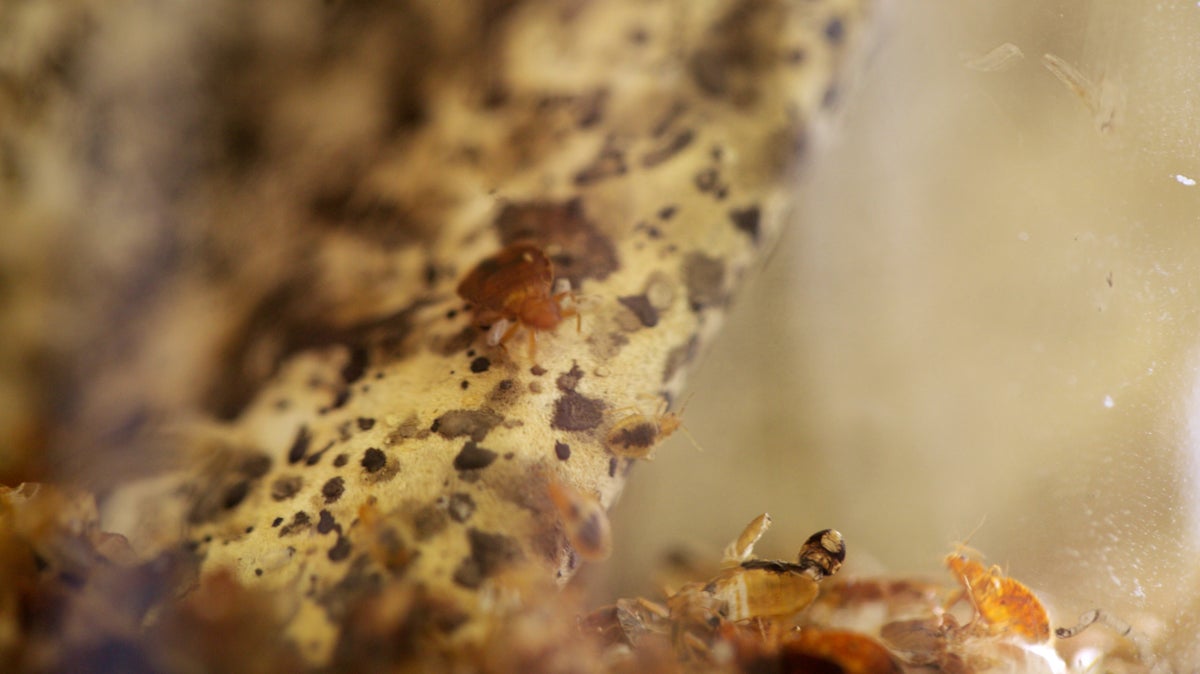Sizing up Philly’s bedbug problem
Listen
Bedbugs are nocturnal and communally feed on their host's blood without being noticed. (Nathaniel Hamilton/for NewsWorks)
As Philadelphia takes aim at bedbugs, skin-crawling testimony at a hearing this week resulted in City Councilman Mark Squilla vowing to form a task force to tackle the growing problem.
It’s quite the task, and this resilient pest may or may not succumb to force. Dr. Michael Levy, assistant professor of epidemiology at the University of Pennsylvania, joins NewsWorks Tonight host Dave Heller to lay out the facts.
Bedbug infestations are nothing new; the tiny bloodsuckers ran amok across the country decades ago. But DDT stopped them cold in their tracks.
“Back in the days when they were very prolific, they were also susceptible to common chemicals like DDT and pyrethroid insecticides, which were commonly used,” said Levy. But he doesn’t recommend heavy insecticide to clear out bedbugs.
Time spent fighting similar pests in Arequipa, Peru, taught him that removal requires a focus on behavioral changes and community involvement.
There is no guaranteed method of defense against bedbugs either, but Levy recommends washing and drying clothes in high heat once returning from a long vacation.
“There’s no need to be too paranoid,” he said. “If you treat early, it’s much much easier.”
WHYY is your source for fact-based, in-depth journalism and information. As a nonprofit organization, we rely on financial support from readers like you. Please give today.

